Understanding self-harm
Self-harm can affect us in lots of different ways.
You might have self-harmed before, be thinking about self-harm, or wanting to support someone else who is self-harming. You might have also heard people talking about self-harm but aren't sure what it means.
Self-harm can be hard to talk about because it can be linked to emotions we don't know how to voice. But it doesn't have to be that way.
We're here to help you understand self-harm, and explain what help and support is available to you.
More information about self-harm
Find out how you can look after yourself:
See tips for coping with self-harm
Find out about how to support a friend or partner:
What is self-harm?
Self-harm involves emotionally or physically hurting yourself on purpose. You may also hear it being called:
- Self-injury
- Cutting
- Self-violence
- Non-suicidal self-injury
- Self-injurious behaviour
We might self-harm for many different reasons, and in many different ways. The reason or way we self-harm may be different each time too. And sometimes we may self-harm but not realise until afterwards.
Self-harm is often misunderstood. Let's break down some myths and stereotypes you may have heard:
Self-harm can take many forms, including:
- Hurting or injuring yourself, like headbutting a wall
- Poisoning yourself
- Doing something that will put you in danger, like getting into fights or binge-drinking
- Not looking after yourself, like not eating meals or washing
- Sending hateful or abusive messages to yourself, or about yourself, online
Any way that someone hurts or injures themselves on purpose can be seen as self-harm.
If you don't realise what you're doing is self-harm, it can be harder to recognise that you need help and support. So it's important to try to understand the reasons behind the behaviour.
Self-harm can come in different forms. I didn't know I was self-harming during the biggest part of it. There will be people out there doing these things and not realising the magnitude of what they're doing.
Anyone can self-harm, no matter what their gender is.
More girls are seen by doctors or local services for self-harm, but that doesn't mean they're the only ones who hurt themselves on purpose.
Boys and men are affected too. And it might be myths like this that make it harder for them to seek help.
If boys self-harm, they may feel judged or misunderstood. Or if their self-harm is hidden by angry behaviour, it may take longer to be recognised and for them to receive help.
People can self-harm at any age.
Children under the age of 11 can still think about hurting themselves, and even about suicide.
It may be harder to recognise self-harm in children. For example, if they are too young to understand their behaviour, or aren't able to talk to someone about it.
Self-harm is not contagious. It can't be caught like a disease and being near someone who's self-harmed doesn't mean you will self-harm. Nor will being told about someone's self-harm.
But there is a greater chance of self-harm if someone close to you has self-harmed. They could be physically close, like in the same class, or emotionally close, like a friend or family member.
Here's some reasons why:
- It can be seen as a ‘normal’ response within a group to deal with difficult feelings or experiences.
- someone may learn how to harm themselves from someone else.
- it can be a result of peer pressure, like copying others to fit in.
This is why we should be careful about how we talk about self-harm to others, and what we see or read online.
Someone might hurt themselves over a long period of time, a short period of time, or even just once or twice. However long their self-harm lasts, it isn't a phase and it shouldn't be ignored.
Being told it's ‘just a phase’, ‘it's emo’, or to ‘stop it’ won't help that person stop self-harming. It might make them feel worse and cause them to hurt themselves more.
People who self-harm need to feel understood. They also need to be supported to learn new ways to cope with their feelings.
At school, if there was someone who had scars on their arms, people would laugh, call them emo and simply be ignorant to it.
Not everybody who self-harms is thinking about ending their life.
Some people who self-harm also experience suicidal feelings, but it doesn't always mean they want to die.
If someone is self-harming and they also feel suicidal, this is an emergency. They could text ‘YM’ to 85258 to talk to an advisor from YoungMind's Crisis Messenger service, or an adult should call 999 to make sure they get the help they need.
People who self-harm may keep it quiet for months or years before telling someone or asking for help.
They may hide their self-harm because they're ashamed or worried about how others will react, or because they don't want to feel like a ‘burden’.
The way someone self-harms may not leave obvious marks or signs either.
It's important to remember there is nothing to be ashamed of. And keeping your self-harm a secret may stop you from getting the help you need.
Some people use self-harm as a way to cope with a negative experience, thought or feeling. They may feel it's the only way for them to cope with the situation, or their feelings, at that time.
However, self-harm is a negative coping strategy. It may get rid of some of the stress or emotion at first, but it doesn't help deal with the reason you're feeling distressed.
And if you start to rely on self-harm as a coping strategy, over time it stops providing a sense of comfort or release, and it helps less and less.
Self-harm is not a diagnosis of a mental health problem. It's a behaviour often used to deal with difficult thoughts or experiences.
When someone hurts themselves, it could be linked to mental health problems. But on its own, it doesn't mean someone has a mental health problem.
Treatment and support for self-harm may be through mental health services, like Child and Adolescent Mental Health Services (CAMHS). Find out more on our page about understanding CAMHS.
It's good to remember that mental health is about how we think, feel and act, and we all have mental health. Getting support for your mental health is a good thing, whether you have a mental health problem or not.
Mental illness comes in all shapes and sizes. It's good for people to know that you don't have to want to harm yourself to need help.
With the right help and support, you can reduce your self-harm and then stop self-harming.
But it may not be easy. The longer you have self-harmed, the longer it may take to break down your reliance on it and replace it with something safer.
Recovery from self-harm is a process, not an end goal. Recovery may be about managing the urge to self-harm, rather than stopping completely.
Sometimes there may be setbacks, and that's okay. It doesn't mean you don't want to get better, and it's part of learning what does and doesn't help you.
Wanting to change how you cope is a great first step to stopping self-harming.
Some reasons why young people self-harm include:
- Living with health problems – like a physical health problem or an illness.
- Living with a mental health problem – or experiences linked with poor mental health, like anger or hearing voices.
- Living with conditions like ADHD or autism.
- Stressful or upsetting experiences – like relationship problems, losing a loved one, bullying, abuse or money worries.
- Intrusive thoughts – thoughts that you don't want but keep coming to you.
- Problems with how you feel about yourself – like experiencing racism or homophobia, questioning your sexuality or identity, having low self-esteem or body image worries.
- Self-harm feeling ‘normal’ among your peers.
- Seeing images of self-harm online.
- Drinking alcohol or taking drugs.
Young people we spoke to also told us they self-harm because they want to:
- Show how they feel without speaking
- Be distracted from how they're feeling
- Cope with, or escape from, painful feelings, thoughts or memories
- Punish themselves for something
- Stop feeling disconnected from themselves or the world
- Create a reason to look after themselves, like caring for wounds
- Manage thoughts of suicide
Self-harm is something we think makes us feel better, but it doesn't. In that moment, yes it does. But it offers temporary relief.
Some of us may try self-harm once, and then move onto a different coping strategy. Others might try it several times because it seems to work, and then start to rely on it.
Self-harm can also bring up difficult emotions, like guilt or shame, which may make it harder to stop or to reach out for help.
Remember: self-harm can only bring temporary relief. It does not help or stop the original problem and it can also put your life in danger. But you can be helped and supported to find new ways of coping.
Self-harm and being LGBTQIA+
Young people who are part of the LGBTQIA+ community, or are still working out what their gender or sexuality is, may experience:
- Someone reacting badly when they come out, like being rejected
- Being bullied, or experiencing stigma or discrimination
- Feeling confused, uncomfortable, or negative about who they are
- Dealing with sexuality or gender stereotypes, to act or be a certain way
- A lack of support from people around them
- Feeling unable to talk openly about how they feel
- Supporting other friends who are also LGBTQIA+
If we don't know how else to cope, we may be more likely to self-harm. This is why young people who identify as LGBTQIA+ might need extra support.
How do I tell someone I'm self-harming?
Try to tell someone you trust as soon as you feel ready to reach out.
Some people may not understand straight away. This could be because they don't understand self-harm, or they're upset and in shock.
Remember: this is not your fault, and there is always someone there to support you. This could be a parent, carer, guardian, friend, partner or a professional like a teacher, doctor or counsellor.
Before telling someone you're self-harming
Before you talk to someone, you might want to think about:
- Writing down how you feel – you could do this when you're feeling calm, or just before or after you've self-harmed.
- Practising what you want to say, or speaking confidentially to Childline or The Mix first.
- Who you want to talk to – you could think about who will be kind and supportive.
- How you'd feel most comfortable telling them – this could be sitting down face-to-face, doing something together, talking over the phone or giving them a letter.
- If you have low self-esteem – this can sometimes make you feel like you're a ‘burden’ to others. This isn't true but can make it feel harder to reach out. If you feel like this, you could try having a chat with a counsellor from Childline or The Mix. They could give you some encouragement or positive things to remember.
- Looking at our information on opening up for more suggestions.
People might realise what they're doing, but they might not feel ready to talk. You've got to be emotionally ready to open up.
Getting ready to talk about self-harming
Once you feel ready to talk, you could:
- Think about how to start the conversation – there's no right or wrong way to do this, but if you need some ideas, you could try saying:
‘This is difficult for me to talk about, but I need to tell you something.’
‘I need your support with something, can we talk?’
‘I've been hurting myself because I feel…’ - Ask someone you trust to help you explain – or to tell someone for you, if they feel able to.
- Try not to tell them too many details about how you self-harm. It may be upsetting for them to hear or a lot for them to take in at first.
- Explain what you'd like from them – are you looking for someone to listen or to help you find support?
- Ask them to let you know if they need to tell someone else – so you know what to expect.
- Plan to do something kind for yourself afterwards – telling someone may not be easy, but it's something you should feel proud of.
What if my parent, carer or guardian doesn't understand?
Some young people we spoke to said their parents, carers or guardians don't fully understand what they've told them or don't want to believe it.
If you experience this, try not to give up. They still love you but might need more time. Here are some tips for dealing with this:
- Be honest about why you're telling them – let them know that you trust them to support you.
- Recognise it may be a shock for them and that you may need to try talking to them again another time.
- Look after yourself – tell them as much as you feel comfortable with at the time. If the conversation becomes too upsetting, ask if you can come back to it at another time.
- Share information with them – it can help to show trusted information about self-harm, like this page, to who you're talking to. Your parent or carer can also contact YoungMinds' Parents Helpline for advice.
- Try a different way of telling them, like writing a letter, if they are struggling to talk to you about it.
- Get help from others – can you think of any trusted adults who can help you speak to them? For example, a teacher, school nurse, counsellor or family friend.
What if I can't talk to my family?
You may feel like you can't talk to your parents, carers or guardians because they won't understand, or because of their cultural or religious beliefs about self-harm. Or they may be a part of the reason you're hurting yourself.
That's okay – there are still people you can talk to and who can offer you support.
You could try:
- Speaking to another trusted adult, like a teacher, school nurse or counsellor
- Talking to a friend
- Talking to a phone or webchat helpline, like Childline or The Mix
Some people might not understand – it's their opinion, not the truth. If that happens, it's not your fault, they're not right.
Self-harm and social media
You may find social media and online forums are helpful places to get support for stopping self-harming.
This support may include:
- Sharing distraction methods
- Sharing success stories in delaying or stopping self-harm
- Talking to people who understand what you're going through
But reading about self-harm online can also be upsetting and dangerous. For example, some people might:
- Share images of their self-harm online
- Include it in Snapchat or Instagram stories
- Make TikTok videos
- Encourage others to hurt themselves through comparing or ‘competitions’
Also, if you're trying to support someone else online, this can be very difficult, especially if you always feel the need to help ‘more’.
Sometimes it's a really toxic place to be – a lot of people share their personal stories, and sometimes it can benefit me, but it can also send someone off the rails.
How to stay safe online
Social media platforms like Instagram are working on better ways to recognise self-harm content online, and for users to be supported with their thoughts and feelings in a safe way.
When you're online, try to:
- Avoid sharing images or distressing descriptions of self-harm.
- Report anyone you’re worried about, or who seems to be trying to make others feel worse. You can find self-harm reporting guidelines at Internet Matters.
- Read information about self-harm on safe and trusted sites that have been set up to help you, like Mind, Alumina or Childline.
You can also read the UK Safer Internet Centre's advice on staying safe online.
Don't fall down a rabbit hole of searching for self-harm on social media, it does more harm than good.
How to cope with self-harm
With time and practice, you can find ways to cope with your feelings. You might find that different things work for you at different times. That's okay.
The strategies you can try really depend on how you're feeling and why you want to self-harm. For example, there are different ideas you can try if you:
- Feel angry
- Feel sad or scared
- Want to feel in control
- Feel overwhelmed or numb
- Feel alone
- Feel ashamed
- Feel like you don't like yourself
When you feel able to, you could help yourself cope with self-harm in the future by trying to:
- Accept the feelings behind the self-harm
- Understand your self-harm
- Reach out for support
- Create a safety plan
- Delay self-harm instead of trying to replace it with something else
Support from your doctor
Talking to your doctor is often the first step to getting treatment and support for self-harm. Your doctor will listen to you and talk to you about how you can stay safe.
As self-harm can be a sign of a mental health problem, they may also ask you questions about how you've been feeling and what's been going on for you recently:
- Your doctor may refer you to support services, such as CAMHS, so you can get help for your self-harm or a mental health problem.
- If they're concerned that your self-harm is a threat to your life, or if you need medical treatment for injuries, they may call an ambulance.
- If your doctor isn't helpful, you can ask to see another doctor for a different opinion – although you may have to wait for another appointment.
For more information and tips, see our page on talking to your doctor.
Support from school or college
Teachers, school nurses and pupil support teams are all there to look after your wellbeing.
By talking to someone you trust at school or college, they may be able to offer you some support, like counselling. They could also help you talk to your parents, carers, guardian or a doctor about your self-harm.
Talking therapies for self-harm
Talking therapies for self-harm include:
They involve talking to a professional about how you feel, and learning new skills, like understanding your emotions or coping with specific feelings or situations.
You can ask your doctor to refer you to talking therapies. You may also be able to refer yourself through local Minds or Improving Access to Psychological Therapy (IAPT) services. You can use our map to find your local Mind.
You may need to have an assessment before you start therapy. If you'd like to read about what an assessment might involve, the National Institute for Health and Care Excellence (NICE) has written some guidelines for young people.
Support groups for self-harm
Meeting with other young people who have similar experiences can help you to support each other and learn new ways to cope. A support group might involve some form of group therapy.
Local Minds or NHS services may offer peer support for young people who self-harm. You can use our map to find your local Mind.
You're not too broken or too far gone for help. There is always help available. And things do get better. It can feel so lonely and scary. But you're not alone.
Online support for self-harm
You may prefer to get support over email, phone, text or forums.
There are lots of organisations that support young people this way:
- Alumina – provides free online self-harm support for 14 to 19 year olds.
- Childline – speak to a counsellor or chat to other young people on their message boards.
- The Mix – offers a webchat and email helpline, crisis textline, 1-2-1 online chat and video, webchat or phone counselling service for anyone needing support.
- Self Injury Support – provides information and support for girls and young women in distress, including a text and webchat service.
- YoungMinds – you can text their crisis messenger service at any time for support.
Remember: be careful when using these sites, as some of the content shared by others may be upsetting.
Will I have to wait for support from professional services?
You may have to wait for treatment and support, possibly for months or even a year. Or you may be told you don't meet the requirements of the service to access support. This can be very frustrating and worrying.
While you're waiting to be seen, you could try:
- Asking your doctor if there's anything else you can try while you wait
- Using our tips on coping with self-harm
- Creating a safety plan you can use, and think about sharing it with people close to you
- Using helplines and message boards like Childline's for support
Where else can I find support for self-harm?
You can find out more about support for self-harm on our pages about:
Find a list of other organisations who can help on our page of useful contacts.
What is a relapse?
You might have gone some time without self-harming, but then started again. This is called a ‘relapse’.
Self-harming again is nothing to be ashamed about, and no reason to feel weak. Recovery is a journey and will involve ups and downs.
You may have relapsed because:
- You felt a particularly strong emotion, like sadness, stress, or anger
- You're going through a difficult situation, like exams or a break-up
- You're going through trauma – remembering things that are upsetting or hard to deal with
- You're hurt or ill
Or the reason you relapsed might be something else. We are all different and that's okay.
I try to remember that I've got out of self-harm before, so I can again. I'm a lot more knowledgeable about myself and I'm not going back to the beginning.
Coping with relapse
When you're feeling a bit better, you can try to work out why you self-harmed again. This will help you to make changes and prepare for similar situations in the future.
You could also try to:
- Think back to when you stopped self-harming before, and what helped and didn't help last time. Is there anything you can do again now?
- Let someone know that you've started self-harming again, to make sure you get the right support. It may be that your doctor can refer you for some further support, or your teachers can give you some extra help at school or college.
Starting the process of not self-harming again shows your strength. And you know you were already successful in stopping once. So this time, you may find it easier to stay free from self-harm for longer.
Coping with scars
Self-harm scars can fade. But as we all have different skin, some may stay visible over time.
Some of us feel that our scars are an important part of our journey, and a reminder that we've come through a difficult experience. For others, they may be upsetting, especially if we're worried about what other people will think.
It's your decision whether you want to show or hide your scars. For more information, see the LifeSIGNS website pages on scar reduction and showing scars.
It does get better. I've been clean for a year. Sometimes the urges come back, but I've learned to cope better. Don't assume you can't be helped, because you can.
Child and Adolescent Mental Health Services (CAMHS)
These are services that support young people with their mental health.
You might see them called different names sometimes, but they offer the same type of services for young people:
- In Wales, they're called Specialist Child and Adolescent Mental Health Services (SCAMHS)
- In England or Wales, you might also hear them called Children and Young People’s Mental Health Services (CYPMHS)
Find out more in our CAMHS information hub.
Counselling
This is a type of talking therapy with a trained counsellor. Counselling can help you:
- talk through a problem or situation that is negatively affecting your mental health
- recognise how it affects you
- work out positive coping strategies or ways to make the situation better.
It may be face-to-face, over the phone or over video call.
Visit our full treatment and support glossaryCounsellor
Counsellors listen to you and give you a safe space to explore how you’re thinking, feeling and behaving. They also help you find ways to cope with things.
Visit our full treatment and support glossaryTalking therapies
These involve talking with a professional about your thoughts, feelings and behaviour. There are many types of talking therapies, such as counselling or cognitive behavioural therapy (CBT). You usually take part for an agreed length of time and number of sessions.
Visit our full treatment and support glossaryCognitive behavioural therapy (CBT)
This is a type of talking therapy with a trained therapist. It can help you look at your thinking patterns and behaviour, to help you find new ways of coping.
CBT may be face-to-face, over the phone or over video call.
Dialectical behaviour therapy (DBT)
This is a type of talking therapy. The aim is to help you:
- understand and accept difficult feelings
- challenge negative coping strategies
- learn new ways to manage your feelings.
You might take part in DBT by yourself, or in a group.
Visit our full treatment and support glossaryGroup therapy
This means being part of a group of young people who attend therapy sessions together. It can be helpful as some problems are better understood with other people. For example, anger, self-esteem or anxiety.
Group therapy is led by a psychologist or therapist. It often combines different types of therapy, like talking therapy or creative therapy.
You might attend group therapy as your main therapy. Or you might have treatment and support on your own as well.
Visit our full treatment and support glossaryPolicy
This is a document that sets out how an organisation will act in certain situations. For example, a transition policy should explain how an organisation will manage a young person leaving their services.
Visit our full treatment and support glossaryThis information was published in June 2021. We will revise it in 2024.
The quotes on this page are from young people we spoke to while making this information. They've given us their consent to use their quotes in our information. The words, experiences and opinions in the quotes are not related to the young people shown in any of the photographs we use.
References are available on request. If you would like to reproduce any of this information, see our page on permissions and licensing.















